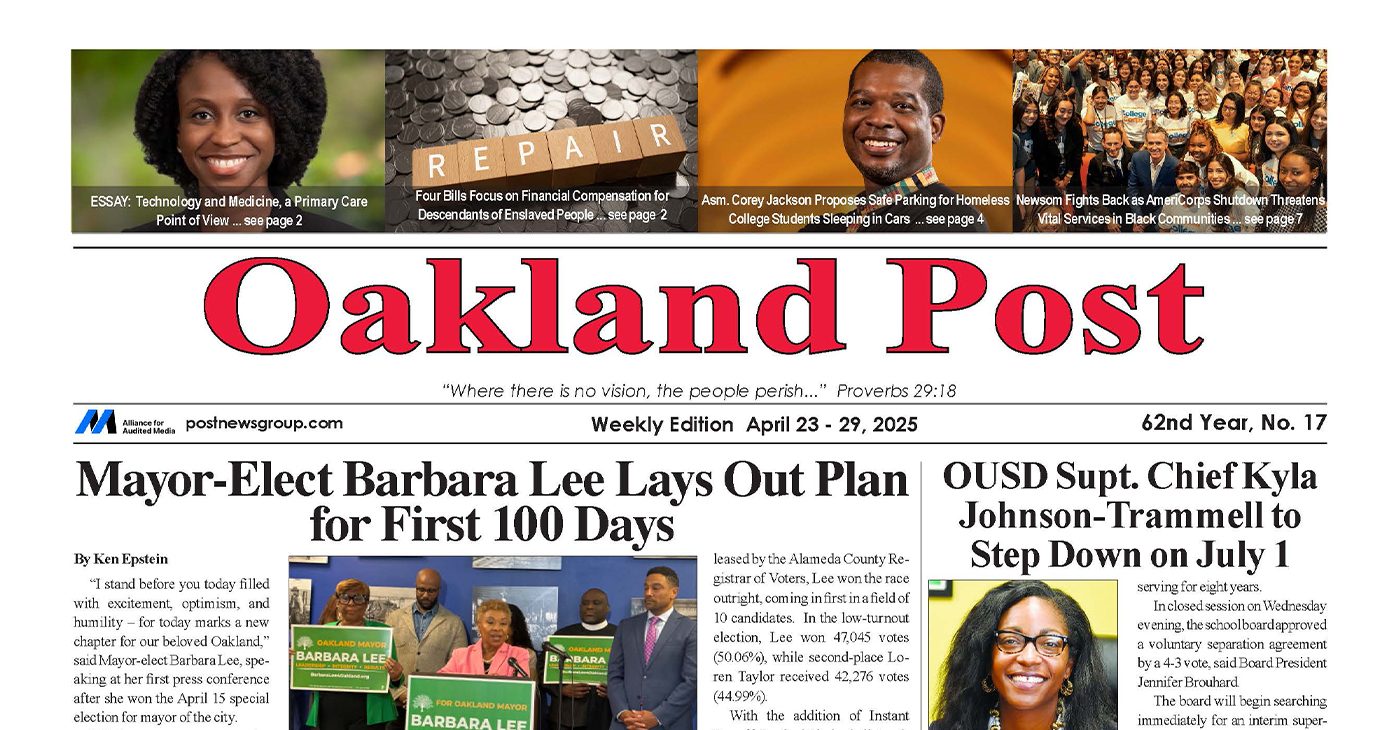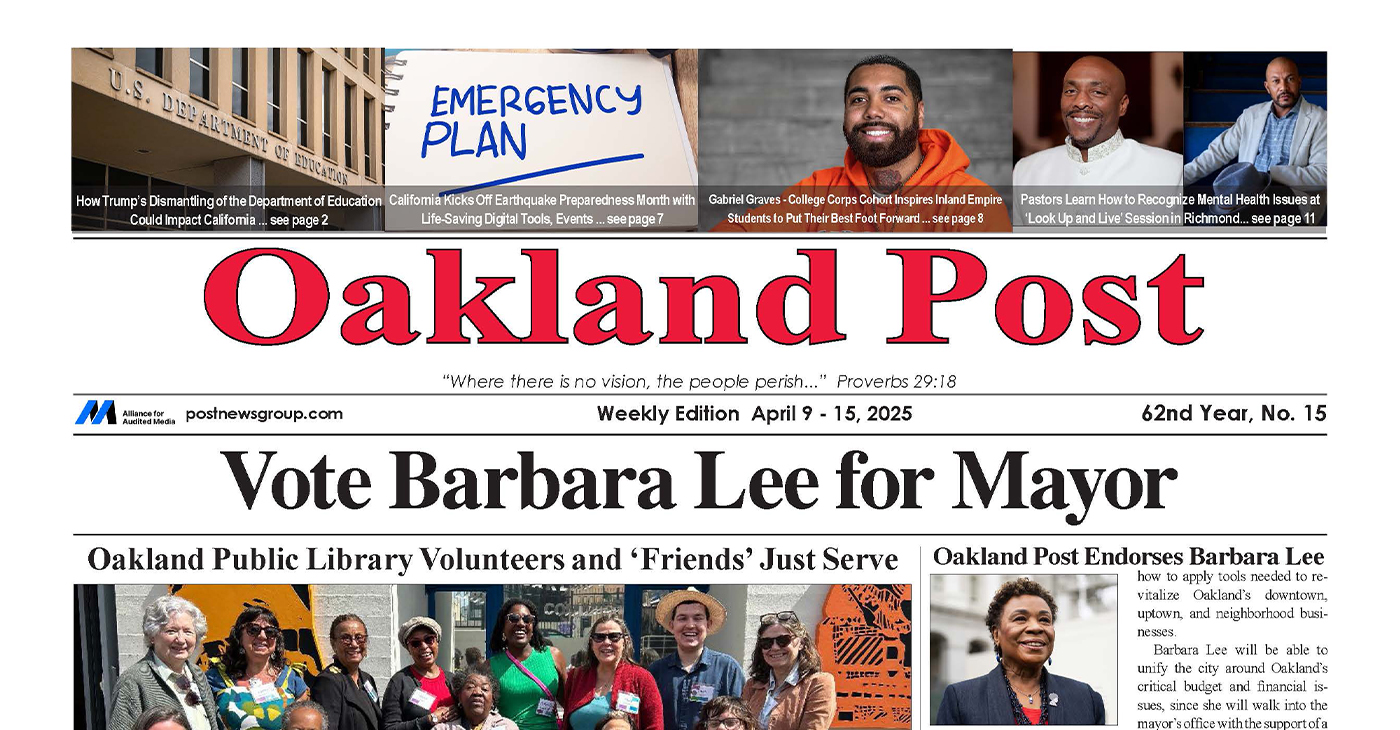Commentary
COMMENTARY: Biden and the Black Misleaders’ shame
FLORIDA COURIER — The disgraceful promotion of Joe Biden’s presidential candidacy is all the proof one needs that the Black Misleadership class is a grave danger to their community and to the nation. Biden was chosen to be Barack Obama’s running mate in 2008 precisely because of his rightwing credentials. But he no longer has Obama’s imprimatur to protect him and his racist history is now out in the open for all to see.
Biden was chosen to be Barack Obama’s running mate in 2008 precisely because of his rightwing credentials. But he no longer has Obama’s imprimatur to protect him and his racist history is now out in the open for all to see.
Not too smart
He was always a lesser light in the Senate and was no better as vice president. Even in 2008, he opined that Obama was “clean and articulate” – a remark which ought to have disqualified him from vice presidential consideration with a Black candidate.
But Obama’s goal was to make clear his own rightward trajectory. Choosing a senator who was anything but progressive and a staunch Zionist gave great comfort to the Democratic party donor class.
The unwavering support from the Congressional Black Caucus (CBC) should be an embarrassment, but these are shameless people. One wouldn’t know that Biden thanked Dixiecrat Senator James Eastland for assisting him in bringing anti-busing legislation to a vote. These facts are inconvenient for people whose presence in office is meant to squelch any effort at Black self determination.
Busing opponent
Biden began his political career in the 1970s and the hot issue of the day was how to integrate public schools.
Biden called busing “asinine” and lamented that White people who were “good citizens” would be forced to send children to “inferior” (read Black) schools. He opposed school desegregation and he said so quite openly and used all the common racist tropes of that era.
Stop the GOP
The duplicitous work of the CBC isn’t difficult to get away with. Black politics has been reduced to one overarching goal: keeping Republicans out of office.
If Black voters support Biden as much as they are said to, it’s because they have been convinced that he is best able to defeat Trump. The Democratic Party establishment and their friends in corporate media are hoping to make this debatable point a self-fulfilling prophecy.
Black voters will again be the losers in 2020, even if the Democrats manage to defeat Donald Trump. The desire to defeat him overrides all else. Every issue of importance to Black people is ignored, every need will be unmet in what we are told is a foolproof plan to get rid of the orange-faced racist.
Biden enablers like James Clyburn and John Lewis excuse the overt racism with claims that they too did business with the segregationists. But they won’t say anything about mass incarceration, police murder or displacement of entire communities caused by gentrification.
Failed strategy
The old canard of making do with a lesser bigot in order to forestall a worse one is an old and failed strategy.
Another failed strategy is to ignore the blatant sucking-up to rich donors. Biden recently told a group of them that he wouldn’t “demonize” the wealthy and assured them that “nothing would fundamentally change.”
Bernie Sanders is a Democratic candidate who can beat Trump who also speaks to the needs of the people. But he is unacceptable because he does that.
The Democrats and their funders have already decided that we can’t have free college, Medicare for All, or an increased minimum wage. Sanders is an existential threat to the austerity project, so his candidacy is dead on arrival.
Marching orders
The CBC and up-and-comers like Stacy Abrams protect Biden because they are told to do so. They have no independence from the Democratic party donor class and they won’t drop Biden unless the one-percent clique tell them to.
For now, the dim-bulb former vice president is hidden. He makes few appearances and doesn’t talk to the press because he’s “gaffe-prone.” He isn’t just a cynical opportunist; he is also stupid and can’t be trusted to be unscripted with the media.
No wonder Democrats miss Obama, who is very smart and could convince everyone that he was on their side. They are now left with the dregs, an old-school party hack who can’t hide his mediocrity.
What we must do
The 2020 election will end in disaster for Black people no matter who becomes the next president. Dumping the Democrats is the only solution to what ails us. They don’t want to change, and they aren’t even likely to win.
If Biden crashes and burns, another puppet will be presented as the savior. Black misleaders will prop up that person too and their constituents will be the losers.
Margaret Kimberley is a co-founder of BlackAgendaReport.com, and writes a weekly column there. Contact her at Margaret.Kimberley@BlackAgendaReport.com.
This article originally appeared in the Florida Courier.
Activism
Oakland Post: Week of April 23 – 29, 2025
The printed Weekly Edition of the Oakland Post: Week of April 23 – 29, 2025

To enlarge your view of this issue, use the slider, magnifying glass icon or full page icon in the lower right corner of the browser window.
Activism
Oakland Post: Week of April 16 – 22, 2025
The printed Weekly Edition of the Oakland Post: Week of April 16 – 22, 2025

To enlarge your view of this issue, use the slider, magnifying glass icon or full page icon in the lower right corner of the browser window.
Activism
Oakland Post: Week of April 9 – 15, 2025
The printed Weekly Edition of the Oakland Post: Week of April 9 – 15, 2025

To enlarge your view of this issue, use the slider, magnifying glass icon or full page icon in the lower right corner of the browser window.
-

 Activism4 weeks ago
Activism4 weeks agoOakland Post Endorses Barbara Lee
-

 Activism4 weeks ago
Activism4 weeks agoOakland Post: Week of March 28 – April 1, 2025
-

 Activism3 weeks ago
Activism3 weeks agoOakland Post: Week of April 2 – 8, 2025
-

 #NNPA BlackPress3 weeks ago
#NNPA BlackPress3 weeks agoTrump Profits, Black America Pays the Price
-

 Activism2 weeks ago
Activism2 weeks agoOakland Post: Week of April 9 – 15, 2025
-

 #NNPA BlackPress3 weeks ago
#NNPA BlackPress3 weeks agoHarriet Tubman Scrubbed; DEI Dismantled
-

 #NNPA BlackPress3 weeks ago
#NNPA BlackPress3 weeks agoLawmakers Greenlight Reparations Study for Descendants of Enslaved Marylanders
-

 #NNPA BlackPress3 weeks ago
#NNPA BlackPress3 weeks agoTrump Targets a Slavery Removal from the National Museum of African-American History and Culture






















































1 Comment